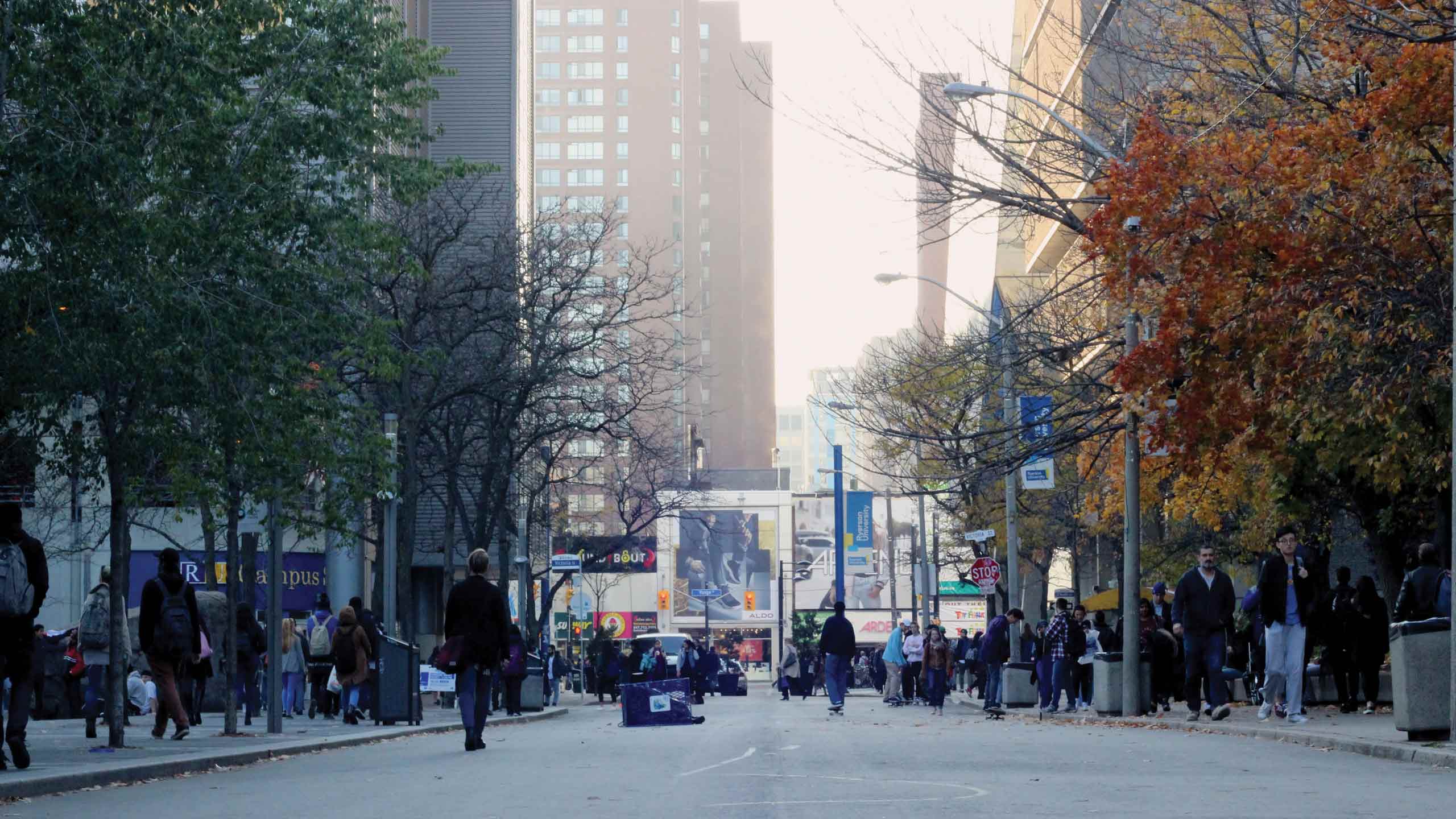By Sylvia Lorico
Ryerson’s security personnel are undergoing additional sexual violence training in order to properly identify and handle cases of sexual assault on campus.
Security training will emphasize how to properly approach sexual assault survivors in order to make them feel believed and supported following an incident. The training includes discussion about rape myths and rape culture.
Security also watched “The Hunting Ground,” a documentary on sexual assault cases on U.S. college campuses that sparked a national conversation.
According to incident records on Integrated Risk Management’s (IRM) website, there were a total of 14 reported sexual assault cases out of 93 total incidents since Feb. 9, 2016.
These numbers do not take into account cases not formally reported to security by students or staff, nor do they include cases not publicly posted by security.
Comparatively, the University of Toronto St. George campus’ 2015 annual security report showed two sexual assault cases were reported.
The extra training comes after the Ryerson Reproductive Justice Collective (RJC) made demands for mandatory equity training led by the Centre for Women and Trans People and the Trans Collective.
On Jan. 23, RJC met with members of the Ryerson administration, the Ryerson Students’ Union (RSU) and the Continuing Education Students’ Association (CESAR) to discuss their demands. These eight demands included banning pro-life organizing on Gould Street, holding mandatory equity trainings for security and asking the university to take an official stance against pro-life protestors on campus.
The administration agreed to provide support for students traumatized by images pro-life protestors use and to look into more training for Ryerson security through the Centre for Women and Trans People, but refused to take an official stance on the issue.
Tanya Poppleton, manager of security and emergency services at Ryerson, said this is not the first instance where extra training has been implemented for security.
“We are constantly evaluating our training needs,” she said. “Whenever someone is willing to offer training to us, we always look to see how can we incorporate that into our curriculums.”
Last fall, the Trans Collective at Ryerson reached out to security and requested additional training for staff. Security responded to this request and worked with Farrah Khan, coordinator of Ryerson’s Office of Sexual Violence Support and Education on training to handle cases of sexual violence.
Tony Conte, interim director of IRM, confirmed security’s dialogue with the Centre for Women and Trans people on additional training.
Cassandra Myers, co-ordinator of the Sexual Assault Survivor Support Line, said that while training for sexual violence is a “step in the right direction,” there’s room for improvement.
“If you train security for sexual violence, you should also train them to deal with other issues like transphobia, racialization and other issues.”
Myers added it would also be beneficial to train security officers under the same methods of the Toronto Police Service to ensure that security on campus is effective.
Poppleton confirmed that security discussed other types of training with the Office of Equity, Diversity and Inclusion.
Training for mental health has also been an important topic.
Ryerson security is usually the first responders for incidents on campus, which means unless they are specifically trained to handle cases regarding mental health, they need to consult with a medical professional.
“We’re not doctors, we can’t make an assessment on someone, we have to just go with what is being presented to us,” Poppleton said.
“We might have some patients who may not want a male responder so being conscious of that and being able to identify yourself and recognizing whether they want help or not and bring in resources to assist those individuals is important.”













Leave a Reply